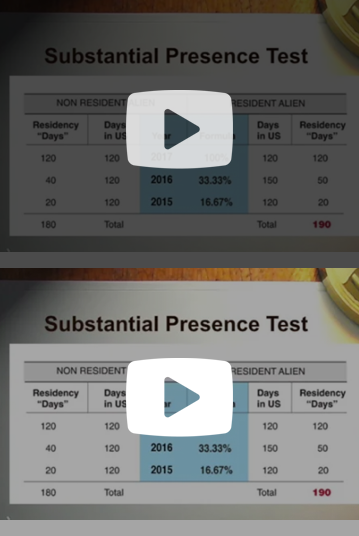Florida Tax Liability Compromise Lawyer
Demands for payment of taxes from the IRS should never be ignored. Instead, they should be proactively dealt with by contacting a skilled and knowledgeable tax attorney who can explore your best options for dealing with an alleged tax liability. One option that is often available is to pursue a compromise of the liability being demanded of you. A Florida tax liability compromise lawyer at Lehman Tax Law can help you understand whether a compromise is in your best interests and if so, can negotiate a compromise on your behalf with the IRS that puts you in a better position and solves your tax problem.
Offer in compromise
An offer in compromise is an agreement between the taxpayer and the IRS that settles a tax liability for less than the full amount owed. The IRS is generally open to considering a compromise in any of the following instances:
Doubt as to liability – A genuine dispute exists between the taxpayer and the IRS over whether any tax liability exists or the amount of the tax that is owed.
Doubt as to collectability – It seems likely the taxpayer simply would not be able to pay the full amount of the tax owed.
Effective tax administration – If the taxpayer can show economic hardship due to being forced to pay the tax, or that imposing the tax would be unfair due to exceptional circumstances, the IRS might be willing to accept a compromise in the interest of the efficient administration of U.S. tax law.
Even if one of these causes exists, a taxpayer generally won’t qualify for a compromise if the taxpayer can fully pay the tax through an installment agreement or some other means. Also, the IRS may require that the taxpayer has filed all returns and made all required estimated tax payments for the current year. If the taxpayer is a business owner with employees, the IRS might further require that the taxpayer has made all required tax deposits for the current quarter.
Generally speaking, an offer in compromise should be equal to or greater than the IRS’s reasonable collection potential, considering the value of the taxpayer’s real property, vehicles, bank accounts and other assets, as well as anticipated future income less certain amounts allowed for basic living expenses. The IRS utilizes a complicated formula in arriving at what a suitable offer might be. Veteran tax attorney Richard S. Lehman can obtain the necessary information to arrive at an appropriate offer amount.
A Compromise Costs Money Up Front
A taxpayer who negotiates an offer in compromise must be prepared to deliver a substantial portion of the debt. The IRS accepts offers based on a lump sum payment or over periodic payments. A lump-sum payment must be paid off in five or fewer installments over five or fewer months, while a periodic payment must satisfy the debt in six or more monthly installments within 24 months. In most cases, you’ll need to pay 20% down or your first payment along with your application for a compromise. If both of these payment plans are out of reach for you, you might want to consider applying for an installment agreement instead or litigating a genuine tax dispute in court.
A Compromise Halts IRS Collection Efforts
Aside from settling your tax liability for less than the amount owed, another benefit of seeking an offer in compromise is that IRS collection efforts are suspended while the offer is pending. This suspension continues for 30 days after an offer is rejected or during the pendency of an appeal, should you decide to appeal a rejection of your offer.
Get Professional Assistance and Results in the Compromise of Your Tax Liability
For qualified, professional legal help negotiating a compromise of your alleged tax liability, call Lehman Tax Law at 561-368-1113 for assistance from a dedicated and experienced Florida tax liability compromise lawyer.



